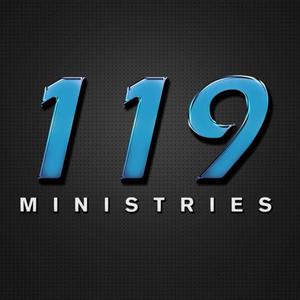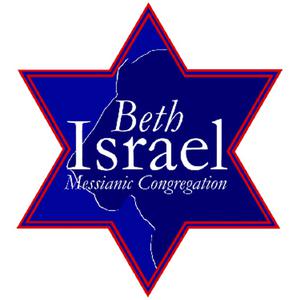
119 Ministries Podcast
119 Ministries
Give it a listen!
- 18 minutes 58 secondsEpisode 675: TE: A Shadow of Things to Come (Colossians 2:16-17)
A shadow of things to come, familiar words to many believers when speaking about the feast days and sabbaths. Paul's teachings on these things in Colossians 2:16-17 are among the more popular verses used to prove the Torah doesn't apply today. But is this claim true? What is the context of Paul's letter here? What are the "things to come" that the festivals and sabbaths are shadows of?
17 December 2024, 6:39 pm - 36 minutes 14 secondsEpisode 674: The Works of the Flesh and the Law of Moses (Galatians 5:16-24)
The works of the flesh (Galatians 5:16-24) have more to do with the Law of Moses (or Torah) than we may realize. Most of us are familiar with the works, or fruits, of the spirit. But how many of us are mindful of the works (or fruit) of the flesh? In Galatians 5:16-24 is Paul just making the works of the flesh up or is he pulling them from somewhere?
9 December 2024, 2:21 pm - 27 minutes 27 secondsEpisode 673: MSG: The Divine Test - Proving Our Faith through God's Commandments
The Divine Test, a way of proving our faith through God’s commandments. But what is this divine test? What does it really prove? How can we pass a test and prove our faith to Yahweh?
2 December 2024, 10:43 pm - 21 minutes 34 secondsEpisode 672: TE: Celebrate the Festival (1 Corinthians 5:7-8)
What’s going on with Christians and Passover? Should they celebrate the festival like Paul talks about? Or was he meaning something else in 1 Corinthians 5? How relevant should Passover be to Christians today? What was it like for the Corinthians?
26 November 2024, 2:16 pm - 17 minutes 57 secondsEpisode 671: Let the Dead Bury Their Own Dead (Luke 9:60, Matthew 8:22)
Why would Yeshua (Jesus) say to let the dead bury their own dead in Luke 9:60? Was the Messiah really that callous as to require his followers to abandon their dying family? What is the cost to following the Messiah, practically speaking?
18 November 2024, 6:44 pm - 36 minutes 44 secondsEpisode 670: TE: Let No One Judge You - Sabbaths, Festivals, and Foods (Colossians 2:16-17)
“Let no one pass judgment on you in questions of food and drink, or with regard to a festival or a new moon or a Sabbath.” Paul's words in Colossians 2:16-17 are among the more popular verses used to prove the Torah doesn't apply today. But is this claim true? What is the context of Paul's letter here? Who was his opposition?
11 November 2024, 10:12 pm - 18 minutes 28 secondsEpisode 669: Rest For Your Souls
In Matthew 11, Messiah said that we should take His yoke for it is light, and that He will give us rest for our souls. Just what would these phrases have meant for His audience and what do they mean for us today?
4 November 2024, 11:38 pm - 33 minutes 22 secondsEpisode 668: BS: Confirm Your Calling - The Day of the Lord Will Come (2 Peter 3:1-13)
2 Peter 3 reminds us that the Day of the Lord will come. Confirm your calling, listen to the Lord, live your life holy and righteous before your Creator. Don’t trust the scoffers, the naysayers. Trust in the Lord.
28 October 2024, 6:59 pm - 55 minutes 29 secondsEpisode 667: FULL: Icons and Idolatry - The Case for Imageless Worship
Mainstream religions use myriads of icons and idolatry throughout their places of worship. Have you ever wondered why churches use statues and icons despite biblical warnings? This teaching explores the foundations of worship, emphasizing the rejection of icons and idolatry by examining historical and modern practices. Join us in exploring what it means to worship in spirit and truth.
28 October 2024, 6:56 pm - 19 minutes 54 secondsEpisode 666: Torah Terminology: Should We Call Ourselves "Christians"?
Should we call ourselves Christian? Does what we call ourselves, or are called by others, really matter? In this video we’ll examine a few potential alternatives to the most commonly used word “Christian”.
28 October 2024, 4:36 pm - 16 minutes 22 secondsEpisode 665: Enslaved to Sabbaths and Festivals? (Galatians 4:8-11)
What is Paul addressing in Galatians 4:8-11 when he talks about being enslaved to sabbaths and festivals? What are the “days and months and seasons and years” he says they need to turn away from? Let’s check out the context and see what we can find.
30 September 2024, 4:49 pm - More Episodes? Get the App
Your feedback is valuable to us. Should you encounter any bugs, glitches, lack of functionality or other problems, please email us on [email protected] or join Moon.FM Telegram Group where you can talk directly to the dev team who are happy to answer any queries.
 Torah Class Three
Torah Class Three
 Messianic Jewish Teachings: David Levine
Messianic Jewish Teachings: David Levine
 Torah Class
Torah Class
 Learn Hebrew from a Messianic Perspective - Holy Language Institute
Learn Hebrew from a Messianic Perspective - Holy Language Institute
 Torah Class Two
Torah Class Two
 Nehemia's Wall with Bible Scholar Nehemia Gordon
Nehemia's Wall with Bible Scholar Nehemia Gordon